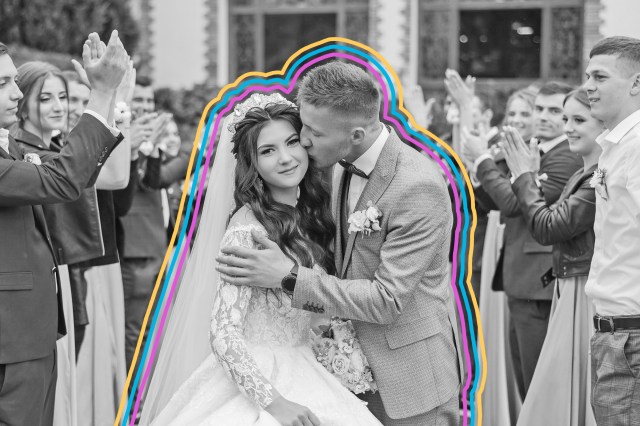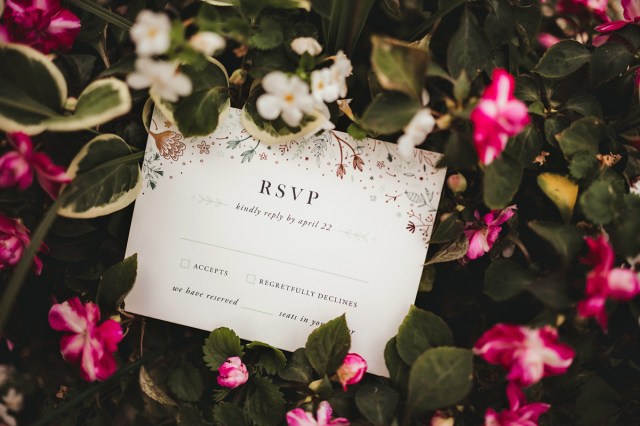
Always RSVP on Time — If Not Early
A typical RSVP due date is three to four weeks before the big day, allowing the couple enough time to make arrangements for seating and food based on the amount of people expected to show up. The RSVP deadline is usually listed on the physical invite and/or wedding website, and you should always respond by that date whether or not you plan to attend. As etiquette expert Myka Meier tells Brides.com, “It can be added stress for the couple to have to follow up with guests who do not RSVP.”
There’s also no such thing as responding too early once invites have been sent. Also, be sure to formally reply by whichever means the couple requests, whether by mail or online, as this keeps all the RSVPs organized in one place. If you tell the couple in person, it could slip their mind later and they will have no written record of your reply.
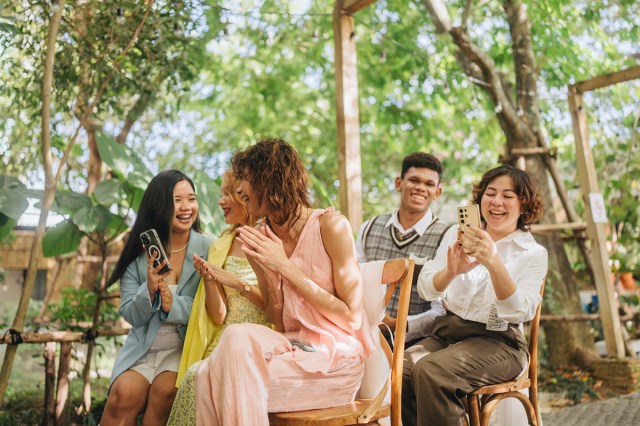
Only Bring Invited Guests
When you’re invited to a wedding, take note of the names on the invitation. If it’s just your name, don’t show up with a guest or assume your little ones are welcome. The only folks who should attend a wedding are people listed on the invite. Of course, if the invitation lists “Guest” in addition to your name, it’s acceptable to bring any plus-one of your choosing.
If you’re asked to attend solo, it may be because the venue has a limited capacity, or the couple may not want children at the event. In fact, the wedding company Zola notes that one in six couples prefer to have adult-only weddings.

Avoid Wearing Certain Colors
When deciding what to wear to a wedding, start by looking at the dress code. “Black-tie” suggests a more formal affair, while “garden party” implies more of a colorful, semi-casual vibe. Once you’ve settled on what type of garment to wear, you’ll need to choose a color.
One of the most widely known wedding etiquette rules is to avoid wearing white and similar colors such as ivory or cream, or even very light pastels that could show up as white in photographs. Wedding planner Brandi Hamerstone tells Martha Stewart, “The bride may or may not wear white … but it’s her color for that day. You don’t want to be mistaken for the bride.” The only exception to this rule is if the couple explicitly requests white attire to be worn for a less traditional affair.
In addition to avoiding white, you should steer clear of whatever color the wedding party wears if you’re made privy to this information, as matching the bridesmaids or groomsmen may cause confusion. Apri Brown, flagship manager of the bridal brand Amsale, tells The Knot, “It’s courteous to avoid wearing the same palette as the bridal party so they can stand out.”
Of course, those colors vary depending on the wedding. To find out which color is taboo, Brides.com recommends asking a member of the bridal party and to avoid asking the couple, as they likely already have enough on their plate. Alternatively, you can check the website or invitation for the color palette to get some insight on what shades to skip.
More Interesting Reads
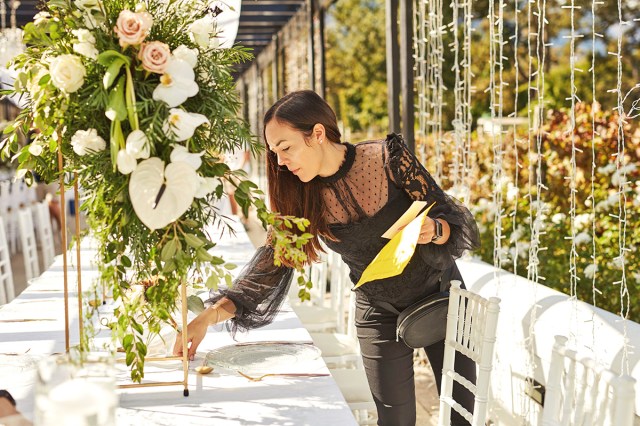
Don’t Contact the Couple on Their Wedding Day
On the day of the wedding, you don’t want to bother the couple, even if you’re running late or feeling sick. Calling them to say you may not make it is only going to add to their overall stress on an already hectic day. Instead, Myka Meier tells Brides.com that you should “try reaching a wedding planner, bridesmaid, or groomsman who can help you.” They’ll be able to provide you with some guidance and can pass along your message to the couple if and when the time is right.
For common questions such as what time the reception starts or directions to the venue, you should avoid bothering anyone involved in the wedding. Those details should be listed on the invitation or website, and it’s easy for you to find those answers on your own.
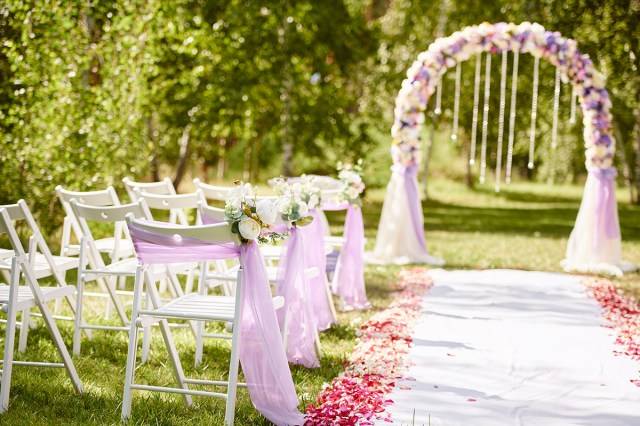
Arrive 15 Minutes Early
Running late can be perceived as disrespectful on any normal day, and to do it on the day of someone’s wedding can be seen as especially rude. Weddings often start promptly at the time listed on the invitation, so showing up even five minutes late may cause a big distraction.
Etiquette expert Lisa Mirza Grotts tells Business Insider, “Guests should plan to arrive at least 15 minutes early,” as that gives you ample time to get seated and clear the aisle. In Brides.com, wedding planner Carina Van Son adds, “The old adage of ‘15 minutes early is on time, and on time is late,’ applies here.”
If you do arrive seconds before the bride is set to walk down the aisle, don’t try to scurry in front of her or sneak in through a side door. Etiquette expert Christin Gomes tells Brides.com that tardy guests should “rely on the ushers to let you know when you can enter the ceremony.”
However, while arriving 15 to 30 minutes before the ceremony is perfectly acceptable, any earlier than that may create complications. The staff may be distracted by your presence, which can impede their work as they hurry to put finishing touches on the venue. With this in mind, aim to time your arrival appropriately.
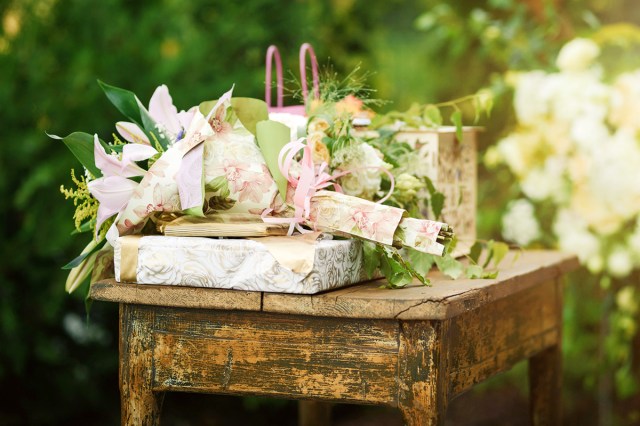
Stick to the Gift Registry
Wedding invites often come with the expectation of purchasing a gift in return, whether you end up attending or choose to send a present in your absence. If you’re wondering how much to spend, a 2o24 guest study conducted by The Knot suggests the average wedding gift is around $150. Feel free to spend more for a close friend or family member and less for people you don’t know as well, such as a colleague or family friend.
According to the Emily Post Institute, cash is always an acceptable wedding gift. But if you’re looking to buy something more tangible than money, it’s best to stick to the couple’s registry. In fact, The Knot lists this as their top piece of advice when it comes to wedding gift etiquette, warning that if you buy off registry “you run the risk of getting the happy couple something they already have or something they don’t need (and possibly don’t have space for).”
Keep in mind that some couples may be starting a new life together in a new space, and they may not have room for two of the same frying pan or the painting you think they’ll love. Buying gifts off the registry helps avoid duplicates and headaches, as all those gifts are items the couple has specifically selected.

